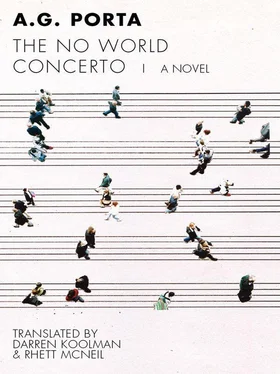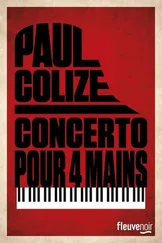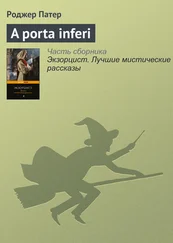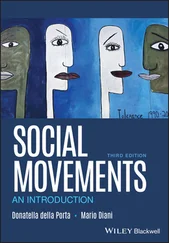“The girl returns to the hotel after a long walk and immediately gets to work. She must resolve the question of her hypnosis.” Sainted woman, thinks the screenwriter of the black prostitute, who used red lipstick to write the sentences on the bathroom mirror. He’d have had a hard time getting started, but now the words are flowing uninhibited. The same can’t be said for the girl, who seems to have run aground on account of not knowing whether or not she was really hypnotized. After getting back to her father’s hotel room, she lay down on the bed. She couldn’t sleep, thinking about the hypnosis; and then later on, wasn’t able to write more than a few miserable lines in her notebook. On the other bed, her father is lying back on a couple of pillows, reading the newspaper. The girl would like to know how long he’s going to go on waiting, but when she asks him, he just shrugs his shoulders and continues reading. Now he’s talking on one of the telephones, whispering so the girl doesn’t hear, although he doesn’t bother leaving the room. His eyes move around the hotel room as he listens, but fix on a particular point on the floor when he speaks. Occasionally, he seems to be looking straight at her, but is actually looking through her. At other times, he inspects his own reflection in the wardrobe mirror, running his hand through his hair once or twice. The girl hears him say something about money. Then there’s a pause. The girl shrugs her shoulders and leaves her father to it. She starts wondering again about the alleged hypnotism, on what night it could’ve happened, and who might’ve been present. She takes a deep breath — something she seems to do a lot, these days — and goes into the bathroom so as not to be distracted by her father’s phone call. She’s unable to hide her preoccupation with his business, and she doesn’t want her father to notice this. She’s annoyed that the brilliant composer has managed to paralyze her work on the novel, although she’s loath to admit he’s the one responsible. She splashes some water on her face and stares at her reflection in the mirror. She’s still getting used to her dyed hair. She puts on her sunglasses so her eyes don’t betray her agitation. Then she stands perfectly still, not making a sound, and tries to eavesdrop on her father’s conversation. She’s used to him always whispering about business and such, but there’s something different about this call. Perhaps she’s beginning to figure things out. She doesn’t close the bathroom door, because while she doesn’t want her father knowing there’s something wrong, that she may have been hypnotized, and that this is the only reason she’s been writing all the time, neither does she want to pretend there’s nothing wrong. She looks in the mirror again. Her expression is dour, sour, but she doesn’t care. She leans against the sink and continues listening, continues looking at the reflection she doesn’t recognize. She has no idea what he’s talking about now because he’s speaking another language. She tries brushing her hair behind her ears, but it’s too short, so she finds it keeps returning to the same place. She then examines her roots, thinking she’ll have to dye them too. Besides her identity, the metallic blonde will also conceal her few gray hairs. She wonders what she’ll look like when she’s old. Her father hangs up the phone. She dries her face with a towel, wondering about how to ascertain whether or not this alleged hypnosis took place. She knows the game’s also part of her reality, that her relationships with the young conductor and brilliant composer, and even the screenwriter, are all directed by it. But she gets the feeling something’s not as it should be, and perhaps now, for the first time, she’s seriously considering where reality is located. Does it exist outside the mind? Always the same question. Sooner or later, in one form or another, the answer will be revealed to her. The idea has its charms, for if nothing exists outside the mind, or to put it another way, if everything that happens outside the mind is unreal, and whatever does exist depends solely on that mind’s creative whim — then nothing has any meaning, and everything’s just a game. Isn’t this the same conclusion she arrived at before? The girl’s thoughts are beginning to fold in on themselves, and she’s feeling disoriented. She sits down. Her father’s voice brings her back to reality. Reality? Hasn’t she just formulated a valid argument negating it? All the same, she could say it’s situated somewhere on another plane, or in a different dimension, although looking at a lie from another angle doesn’t make it any less of a lie. Her father tells her the star of her favorite soccer team has finally returned, and is to face disciplinary action. The girl approaches him. The words “disciplinary action” worry her. She gets the newspaper to find out more. Besides, she’d like to check if her ad is still in there, and if it’s gotten a reply yet. She then calls the brilliant composer and apologizes for overreacting, for letting what he said about her replacement’s performances on the piano upset her, for getting riled up when he told her how much progress the young conductor’s latest conquest is making, and for playing the martyr when he said she was wasting her time with all the writing. It’s not her fault, he tells her. All your troubles started after you were hypnotized. So you shouldn’t feel responsible. She challenges him to prove it, demands that he show her the evidence. He hangs up.
Since she can’t write, she goes for a walk, getting lost amid narrow, filthy alleyways she never imagined existed in the neighboring country’s capital. She walks in the general direction of the city center, enters the occasional bookstore on the way, but instead of reading the beginnings of certain novels, she decides to read their endings. An interesting exercise, she thinks, reading the ending and then trying to guess everything that went before. The screenwriter has spoken to her about the step-by-step method for constructing a story. But she thinks all he’s doing is trying to justify his own method by making it appear universal. She’s mentioned this to him on occasion. She believes writing a novel requires a very different approach to writing a screenplay. She goes to the river and watches the boats full of tourists pass by. The same every day, she thinks, from one end of the city to the other. She then sits on the terrace of a bar and goes through some of the newspapers, looking for any articles she may not have read. She feels tired and weak, and she wonders if the whole world’s conspiring to rob her of her vitality. Perhaps she’s reached the end of her tether. It may not be wise, always fighting against everything and everyone, she thinks. The most reasonable thing to do, perhaps, is go home to her native city. And yet she knows her problems won’t go away with a change of address. All the newspapers are still running her personal ad, but none of them feature a reply. Once back in the hotel, alone in the room, she awaits her father’s return. She doesn’t see the point of staying in the neighboring country’s capital if she doesn’t have an objective in her life. She smokes a couple of cigarettes on the balcony, watching the station, before finally deciding to go look for him. She knows it’s forbidden, but she believes she should tell him about her plans to leave the city. The girl sits beside the station platforms and observes. She’s not worried about being recognized. Her dyed hair and sunglasses will keep her identity under wraps. She walks up and down the main foyer, then she checks the restaurant, the café, and finally the benches where a bunch of tourists are sitting, but there isn’t a sign of her father or the cousin anywhere in the station. Shouldn’t one of them be on watch? she asks herself.
Читать дальше












